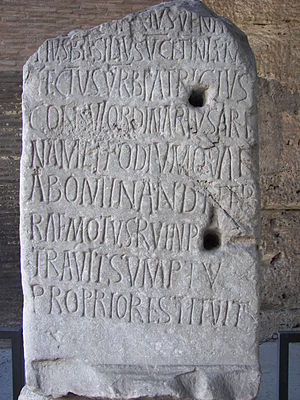Classical Latin is the modern term used to describe the form of the Latin language recognized as standard by writers of the late Roman Republic and the Roman Empire. In some later periods it was regarded as "good" Latin, with later versions being seen as debased or corrupt. The word "Latin" is now taken by default as meaning "Classical Latin", so that, for example, modern Latin text books describe classical Latin. Marcus Tullius Cicero and his contemporaries of the late republic, while using lingua Latina and sermo Latinus to mean the Latin language as opposed to the Greek or other languages, and sermo vulgaris or sermo vulgi to refer to the vernacular of the uneducated and less-educated masses, regarded the speech they valued most and in which they wrote as Latinitas, "Latinity", with the implication of good. Sometimes it is called sermo familiaris, "speech of the good families", sermo urbanus, "speech of the city" or rarely sermo nobilis, "noble speech", but mainly besides Latinitas it was Latine (adverb), "in good Latin", or Latinius (comparative degree of adjective), "good Latin."Latinitas was spoken as well as written. Moreover, it was the language taught by the schools. Prescriptive rules therefore applied to it, and where a special subject was concerned, such as poetry or rhetoric, additional rules applied as well. Now that the spoken Latinitas has become extinct (in favor of various other registers later in date) the rules of the, for the most part, polished (politus) texts may give the appearance of an artificial language, but Latinitas was a form of sermo, or spoken language and as such retains a spontaneity. No authors are noted for the type of rigidity evidenced by stylized art, except possibly the repetitious abbreviations and stock phrases of inscriptions.




Aipatu
0